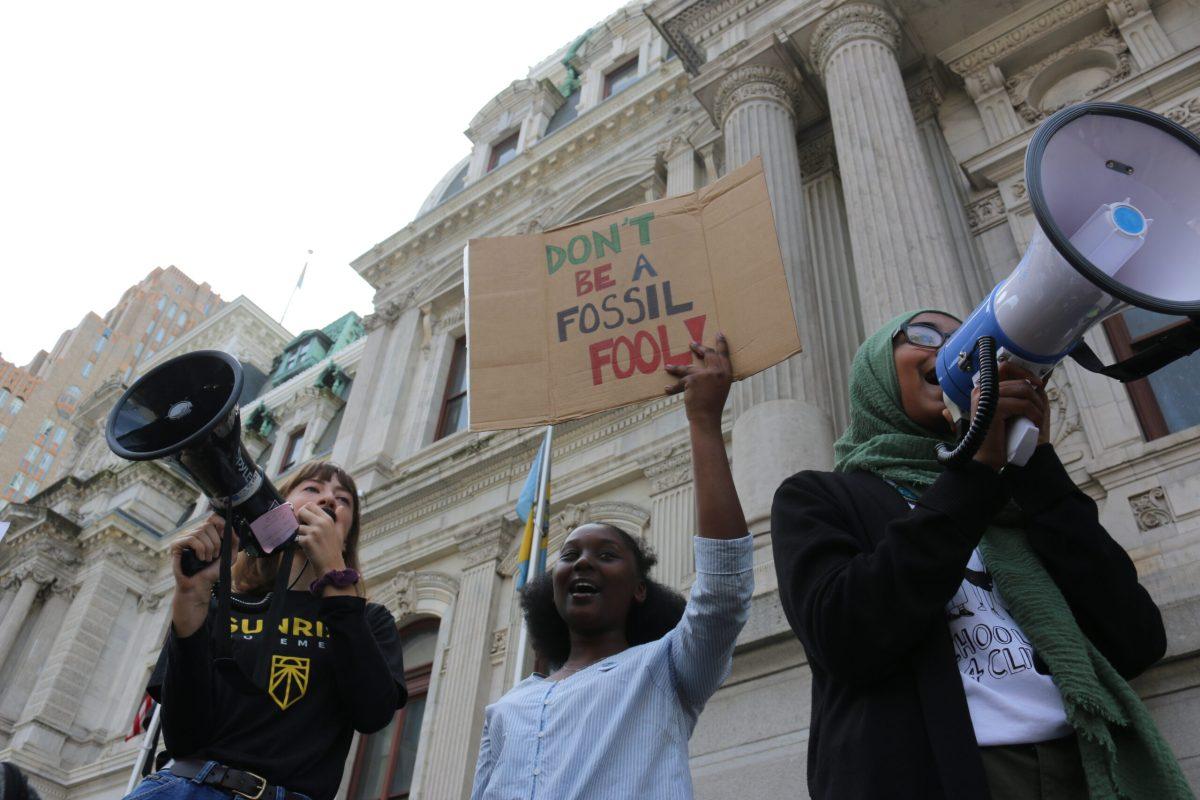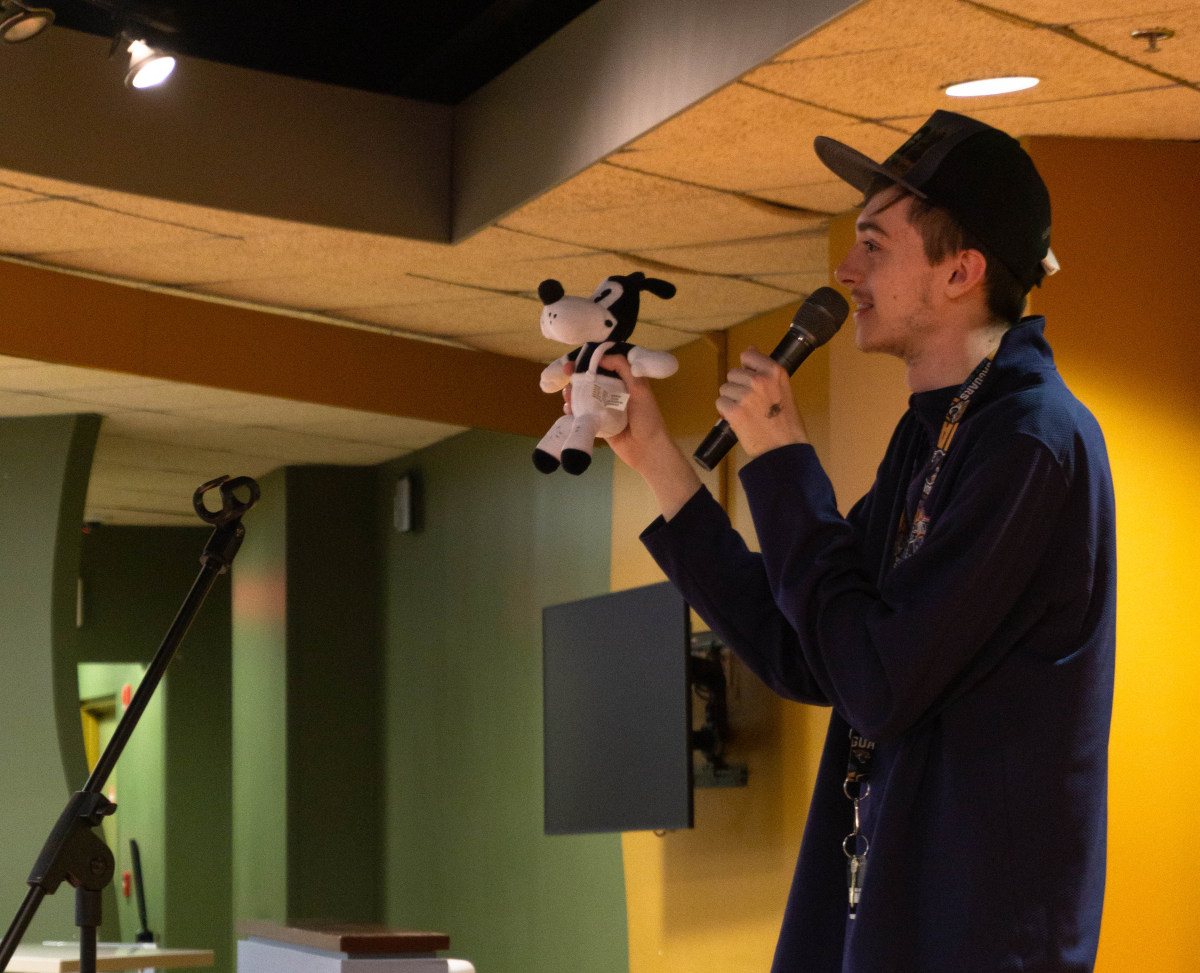Instead of rushing the gates of Area 51, like many swore to do, millions of people around the world gathered in some of the largest metropolitan areas on Sept. 20. The Whit was present at the Philly Climate Strike at the Council Hall. The goal is to pressure policymakers into passing laws that combat climate change. Many of the people involved in organizing and attending were students.
One such organization is Sunrise Movement, a national non-profit dedicated to inciting political action on climate change. The organization’s co-founder, Varshini Prakash, was present in Philadelphia. She spoke about pressuring political figures to get behind the green new deal.
In an interview with Luna, a Sunrise Philly representative, she spoke about the immense growth of the organization within the past few years.
”Sunrise has gotten bigger in the last year,” she said. “There used to be 11 hubs nationwide, now there’s 240.”
Hubs act as the primary tool Sunrise uses to organize events. There are currently nine hubs in New Jersey. However, there is an abysmal presence in South Jersey.
According to the Sunrise Movement’s website, ”Hubs do the most important work of the movement: growing participation, elevating the urgency of climate change and challenging to win political power.“
Nicco Carleton, a 16-year-old student of the Philadelphia area, was among the students that skipped class to raise awareness about climate change. He was glad to see such a big turn out and is confident about the future of climate policy.
“I’m really hopeful about the prospect of being the first generation to combat climate change,” Carleton said. “Given the facts and confidence about how to tackle it, we can actually stop or even reverse climate change as we know it.”
One of the most promising members of the Sunrise Movement was Hadassah Weinmartin. At 13 years old, she started her own chapter of Sunrise in Northwest Philadelphia to organize people her age and raise awareness about the consequences of climate change.
“The Sunrise hub is a lot further away from where I lived,” Weinmartin said. “I want to be able to organize kids in elementary school and middle school so that we can combat climate change and be the first generation to tackle it head on.”

Among the speakers at the Philadelphia Council Hall was Sabirah Mahmud. A 16-year-old sophomore at Academy at Palumbo high school, she spoke to over a thousand protesters where she prefaced her speech by acknowledging her privileged life. Specifically, being raised in University City, Philadelphia.
”If you’ve ever been to University City, you can say I’m privileged to live in an environment with clean streets and no power plants in my backyard,” Mahmud said.
She went on to appreciate the amenities of a clean environment. Sabirah’s family hails from Bangladesh, a prominently Muslim country in Southeast Asia. Her experiences when revisiting her home contradicted her childhood memories. Due to the flooding in her family’s home country, climate change was a big focus of her speech.
”When I was two, Bangladesh didn’t suffer from all the floods that it does now,” Mahmud said.
Bangladesh’s natural history is flooded with cyclones and other natural disasters. However, the summer of 2019 proved to be a test of Bangladesh‘s resolve and strength. The International Federation of Red Cross and Red Crescent Societies (IFRC) said, “4 million people are at risk of food insecurity and disease because of the flooding in Bangladesh.”

Sabirah’s point of sharing her stories was that we take for granted the clean environments some people in this country are lucky to have. Climate change is more than just a rise in sea level, it’s a threat to many aspects of society. With so much of our species situated on coastlines, governments should be putting in policies to combat these real threats. Sooner rather than later.
For comments/questions about this story, email [email protected] or tweet @TheWhitOnline
























































































































































!["Working with [Dr. Lynch] is always a learning experience for me. She is a treasure,” said Thomas. - Staff Writer / Kacie Scibilia](https://thewhitonline.com/wp-content/uploads/2025/04/choir-1-1200x694.jpg)














































